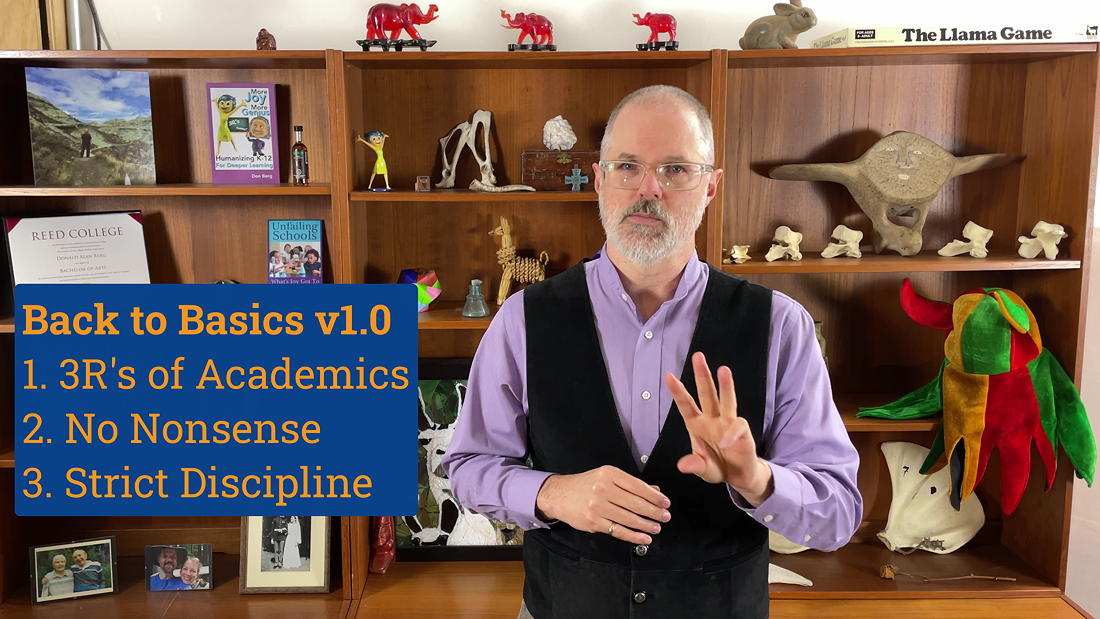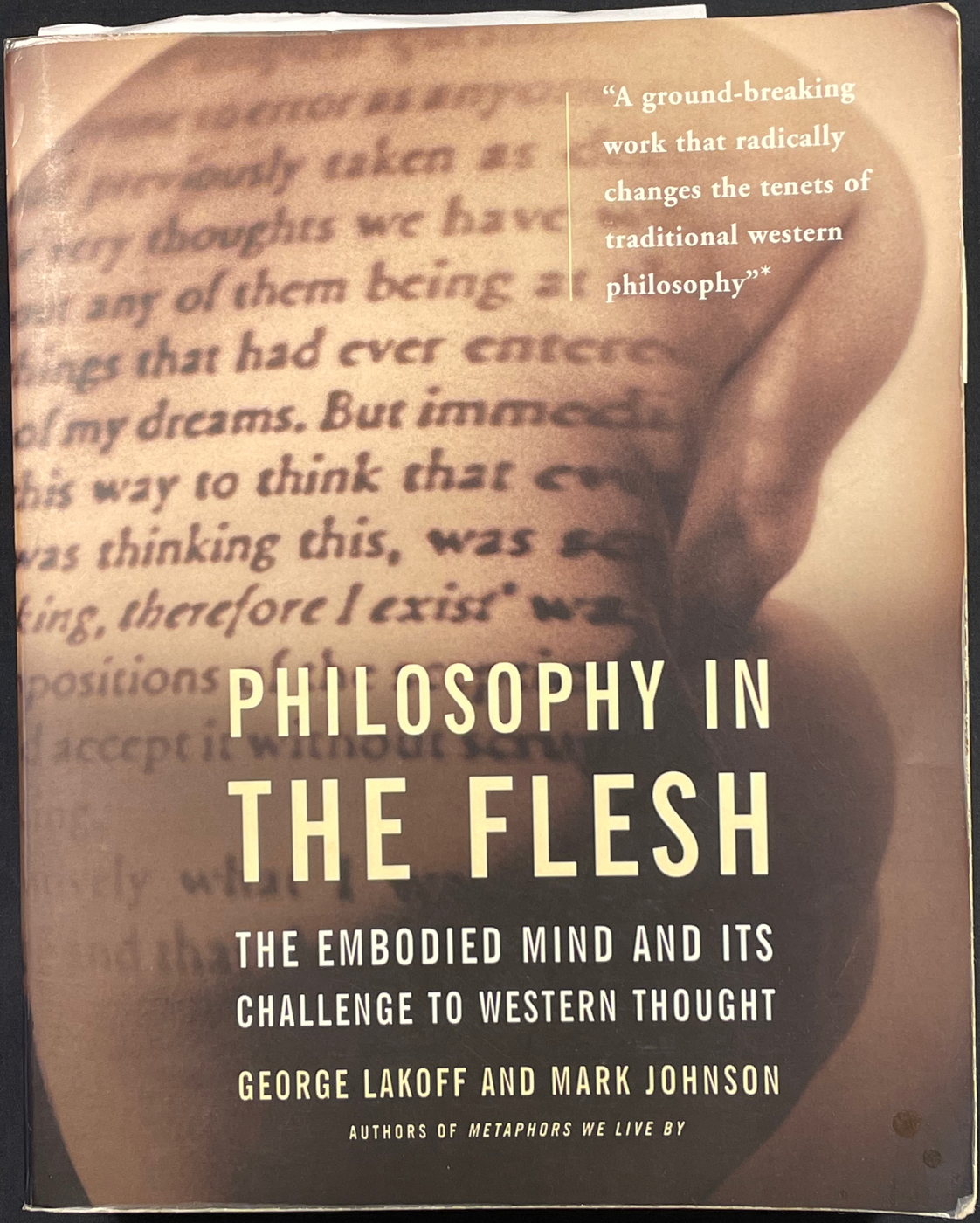Definition Of Education:
The Literal Core
Hello and welcome.
There seem to be as many definitions of education as there are people willing to define it.
Reading for years plus a quick search online reveals a wide range of existing definitions, but it seems to me that there is a specific gap in the available definitions.
That gap is identifying a core literal meaning that would effectively serve as a kind of connecting root for all the conceptual branches that are out there.
A literal core is useful for discerning valid definitions of education and where some proposals may stray outside the realm of the plausible.
For instance, let’s consider whether educating six to twelve year old children in a strictly bureaucratic school system is plausible.
A Literal Core Definition Of Education
My name is Don Berg.
I propose that the literal core meaning of the term “education” is the development of people who—though not necessarily consciously aware of doing so—perceive accurately, think clearly, and act effectively on self-selected goals and aspirations that are appropriate to their situation.
(I am not a cognitive linguist, so I cannot rigorously confirm my hunch that this is the literal core, but I trust that such a test could be done.)
The question of whether a strictly bureaucratic school system can educate children is relevant because the legislators that regulate most primary schools are operating on the assumption that bureaucracies ARE a practical means of doing so.
If that assumption is wrong then they have bigger problems than they realize.
The key to our consideration is having three clearly defined elements come together into a practical educational setting.
The first obvious element is the children.
Is Symbolic Mastery Important to the Definition Of Education?
What do six to twelve year olds need?
On page 58 of his 1999 book Unschooled Minds, Howard Gardner, the creator of Multiple Intelligences Theory and a Professor at Harvard, talked about the consensus that was arrived at by the early theorists in human development.
“Once the importance of symbols had been recognized within the academy, researchers concerned with human development reached a consensus that [the primary school years are] best termed a time of 'symbolic mastery.'
“Such otherwise disparate scholars as Jean Piaget, Heinz Werner, Alexander Luria, and Jerome Bruner would all concur with this characterization.
“Indeed, so great is the consensus that one wonders whether possibly everyone may INEXPLICABLY have overlooked some competing issue.”
Gardner was correct to question the consensus that symbolic mastery serves as a developmental imperative because it is wrong.
What children of that age need to master is governance, the ability to manage their own and other people's behavior.
Symbols may be a necessary part of the task of governance, but they are merely a part, a salient part.
Salience
“Salient” is a psychological term that means stuff that catches our attention.
One of the things that has been consistently found in psychological studies is that human attention is attuned to some things more than others.
Specifically, we sometimes have trouble separating the salient, attention grabbing, features of a situation from the causally relevant factors that actually make stuff happen.
Consider advertising.
There is no logical necessity for combining the images of a scantily clad woman, a NASCAR racer, and a brand of beer.
However, advertisers discovered that women and fast cars are salient to many men who drink beer.
Therefore putting the woman and the car together gets a beer-drinking man's attention.
As he takes in the fullness of the over-all ad his cognitive machinery creates a powerful association between the image of the beer logo and the emotions that he feels.
That association has had enough of a causal influence on beer buying behavior that women and cars are now common components of beer ads.
So, symbolic mastery is a salient part of governance.
But, it is like the scantily clad woman in the beer ad, you can drank beer without a sexy woman around and it is possible to govern without mastering academics.
In both cases, the experience is cooler or in some way better when those salient, but non-causal features, are present.
Paying attention ONLY to the salient stuff is a mistake.
The causal structure of the task is the most important part.
Is Bureaucracy Important to the Definition Of Education?
This brings us to the second component of our consideration: we are subjecting our beloved children to WHAT kind of situation?
Another major finding in psychology is that the situations in which we, as individuals, find ourselves are far more powerful than the personalities that we bring into those situations.
This goes against a basic intuition we almost all have.
Our intuition says that we are each a certain kind of person and that THAT is who we will be independent of what situation we happen to occupy.
That intuition is not completely wrong, but situations are FAR MORE powerful than we give them credit for and organizations are one of the most important ways to create a situation.
One of the functional consequences of the bureaucratic form of organizational management is that the managers are regarded as the primary decision makers, they are thought to have the most agency to direct their own activities.
The lower the position a person occupies in the organizational hierarchy the less agency they are expected to have.
A lack of agency has the well-documented effect of causing various forms of psychological distress amongst the people in bureaucratic organizations.
This effect is widely known as “alienation.”
The famous early sociologist Max Weber referred to the “iron cage” that results from an over-reliance on being ruled by a powerful elite, also known as oligarchy.
Achieving the Goal?
The third element of our consideration is to figure out if embedding children in an oligarchic school bureaucracy can plausibly achieve the goal of an educative outcome.
The key thing to notice is that the children are at the very bottom of that hierarchy.
When the bureaucracy is implemented in its strictest form then those children have almost no agency to determine their activities.
This is where the distinction between the literal and metaphorical definitions of education become crucial.
Let’s consider the effects of a metaphorical definition that takes symbolic mastery too seriously by ignoring the negative effects of psychological distress on learning which might result from regarding symbolic mastery as a developmental imperative.
Back-to-Basics 1.0

That would give us something like the Back-to-Basics movement from the Nineteen-Seventies.
The One-Point-Oh version of the Back-to-Basics movement had three core tenets:
- teach the 3R's of academics,
- no nonsense in the classroom, and
- strict discipline.
They were calling for restrictions on the agency of teachers and students in the classroom.
That restriction makes sense as long as they are thinking that the central task of the school is the efficient delivery of academic knowledge, skills, and information, also known as symbolic mastery.
The tenets of that movement logically follow from combining the power of the entrenched school bureaucracy,
the mistaken declaration that symbolic mastery is a developmental imperative,
with the pervasive mandate for six to twelve year old children to attend school.
Realizing that their conception is a metaphorical construction, not a literal one, we can sympathize with their confusion.
How to Use the Literal Core of the Definition of Education
Going back to the literal core of what we mean by education let's consider if what they propose is likely to have the intended effect of educating those children.
The majority of a child's waking hours over a majority of the calendar year is typically dominated by schooling.
Schooling that nearly every country in the world currently mandates by law for those children.
The One-Point-Oh version of the Back-to-Basics movement intends to have an adult who is a strict disciplinarian imposing “non-nonsense” instruction exclusively devoted to the basics of academics.
What effects should we expect this to have on the accuracy of the children's perceptions, the clarity of their thinking, and, most importantly, their ability to act effectively on self-selected goals and aspirations?
First off, due to the level of authority that the teacher is expected to exercise, in order to maintain a relentless focus on the Three R's of academics, the design intention of Back-to-Basics 1.0 forces adults to select activities for children.
The necessary self-selecting component of education is almost eliminated right from the start and whatever goals and aspirations are available to them are severely narrowed.
The motivational situation of primary school is also complicated by the fact that children may feel that they were forced to attend.
Feeling forced would mean that the motivations they experience are more external rather than internal which predictably diminishes the quality of the learning they will do in that school.
Remember that governance is their developmental imperative.
What we would predict for students in bureaucratic schooling is that they are going to be exposed to a severely limited range of governance behaviors.
The adult teacher is expected to impose the will of distant authorities higher up in the hierarchy as they model for the children, at best, authoritative training.
Given that we are positing a strict bureaucracy the practical result will, despite the best of intentions, be more like authoritarian dictatorship.
The practical effects of this design are simply not consistent with the literal core of the definition of the term “education.”
The best that a bureaucratic Back-to-Basics 1.0 design should be expected to accomplish is to get shallow compliance from the majority, while some minority will learn more deeply because, purely by coincidence, the good people within the system will provide children with what they need even if they must act outside of their mandate.

Governance as a Developmental Imperative
The developmental imperative of learning how to effectively govern their own and other people's behavior would be largely thwarted due to the severe limitations on agency.
When the developmental imperative is governance, the exercise of agency is not an optional add-on to schooling, it is central to effective learning.
In the real world it is clear that most schools embedded within state bureaucracies actually work hard to modify how they approach both the basics and the bureaucracy in order to better serve children.
Effective state-run schools must be achieving something akin to an adhocracy, a meritocracy, or some other modification of bureaucracy, because there is no good reason to believe that the situation of a true bureaucracy is the least bit capable of educating children.
The word “school,” if it has a literal core meaning it is probably that of an educational institution.
Recall that the literal core of the term “education” is the development of people who—though not necessarily consciously aware of doing so—perceive accurately, think clearly, and act effectively on self-selected goals and aspirations that are appropriate to their situation.
No matter how compelling any given organization may seem, if it undermines the literal core of education the situation they are creating is NOT educative.
Such organizations do not deserve the label of “school.”
It is antithetical to the core EDUCATIONAL purpose of schools to interfere with students and teachers pursuit of their self-selected goals and aspirations.
This does not mean that schools cannot take on the task of imparting specialized academic content.
But their students need to approach their instruction as a means of pursuing THEIR self-selected goals and aspirations by making an empowered choice to participate in that institution.
An “empowered choice” is one that was made by a student who
1) has their needs satisfied,
2) is more internally rather than externally motivated, and
3) engages with their studies in an agentic manner.
The timing of the choice can be flexible.
It is perfectly plausible for students to be MADE-to-come, but with the right support, CHOOSE-to-stay after having had a chance to experience whether to not the program is working for them.
In order for this to work there should be clear decision points at which their choice to opt-in is clear and information about reasonable alternatives has been provided.
Currently, almost no schools have the ability to meaningfully evaluate the quality of the decisions made by their students.
This is why Catalytic Pedagogy is a perspective on education and schooling that includes a data model.
Holistic Equity DOT Org is where you can read more about Catalytic Pedagogy and Back-to-Basics 2.0, which is a new way of thinking about how to better achieve our educative goals in schools.
Educative goals that should be constrained by the literal core definition of the term education.
No matter what imaginative additions expand on a definition of education it should be consistent with the literal core.
Thanks for watching.
Click here for more about what Philosophy of Education is best for achieving equity.
Click here for a collection of definitions of education.
This article was printed from HolisticEquity.com


